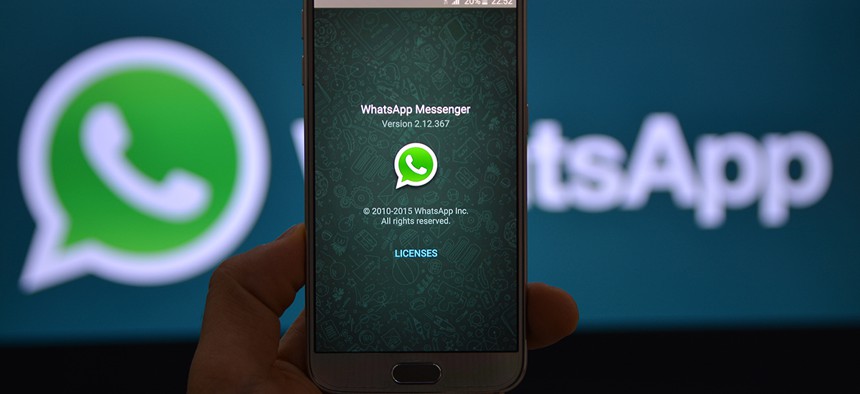ISIL’s Human Traffickers Use Facebook, WhatsApp and Telegram to Sell Slaves

endermasali/Shutterstock.com
A U.N. report suggests authorities tap the same platforms exploited by traffickers to raise awareness and deter the spread of modern slavery.
By now, ISIL’s use of social media as a recruitment tool is common knowledge. Less known is the group’s use of those same digital platforms to scout and lure sex slaves.
Recently, about 100 experts from United Nations entities and affiliates, law enforcement, technology and media gathered for a two-day workshop on human trafficking in the Middle East. The end result, a U.N. University report released this month, shows ISIL has enslaved more than 5,000 Yazidis, members of a small ethnically Kurdish community in the Middle East.
While most of the slaves are from the Yazidi community, a January U.N. report found ”a number are also from other ethnic and religious minority communities.”
Yazidi women and girls are typically lured to conflict areas with the promise of getting to serve as “wives” to ISIL fighters—only to be kept captive as slaves instead. Then, they are sold or bartered: The U.N. reports ISIL has used Telegram, an encrypted application, to set up online slave auctions, circulating photos of captured women and girls that list their age, marital status, current location and price.
In May, an ISIL member took to Facebook to auction off two enslaved women, asking for $8,000. (The post, which included pictures of the women, was removed shortly after being published). Another tactic is to offer Yazidi captives from Iran to men, via online magazines and YouTube videos, to entice them to join the fight.
“Social media platforms are being used to facilitate trade and trafficking,” Zainab Hawa Bangura, a U.N. special representative sexual violence in conflict, said in a speech earlier this year. “Women and children are offered in the same on-line forums as rifles and rocket-propelled grenades.”
Social media sites have long struggled to weed out terrorist behavior, but there have been recent efforts to track down terrorism-related posts and boot perpetrators. The next step is to extend help to victims. The U.N. report suggests authorities tap the same platforms exploited by traffickers to raise awareness and deter the spread of modern slavery.
Each nation, the September report says, should introduce social media campaigns and “countermessaging efforts to blunt terrorist narratives and online recruitment attempts.”
Suggestions include imitating the U.K. Metropolitan Police’s video campaigns, which had three Syrian mothers who fled their country tell stories of what it was actually like to live with a family in ISIL-held land. The goal was to break down the falsehoods projected by ISIL during recruitment.
In addition, the recent U.N. report says social media organizations should work to identify, based on the content of their feeds and geospatial data, specific individuals who may be vulnerable to human trafficking in conflict, and incorporate warnings and assistance information (such as details for a hotline or assistance app) into social media feeds—much like Facebook started doing for those at risk of committing suicide.
NEXT STORY: GAO finds holes in ACA data verification





